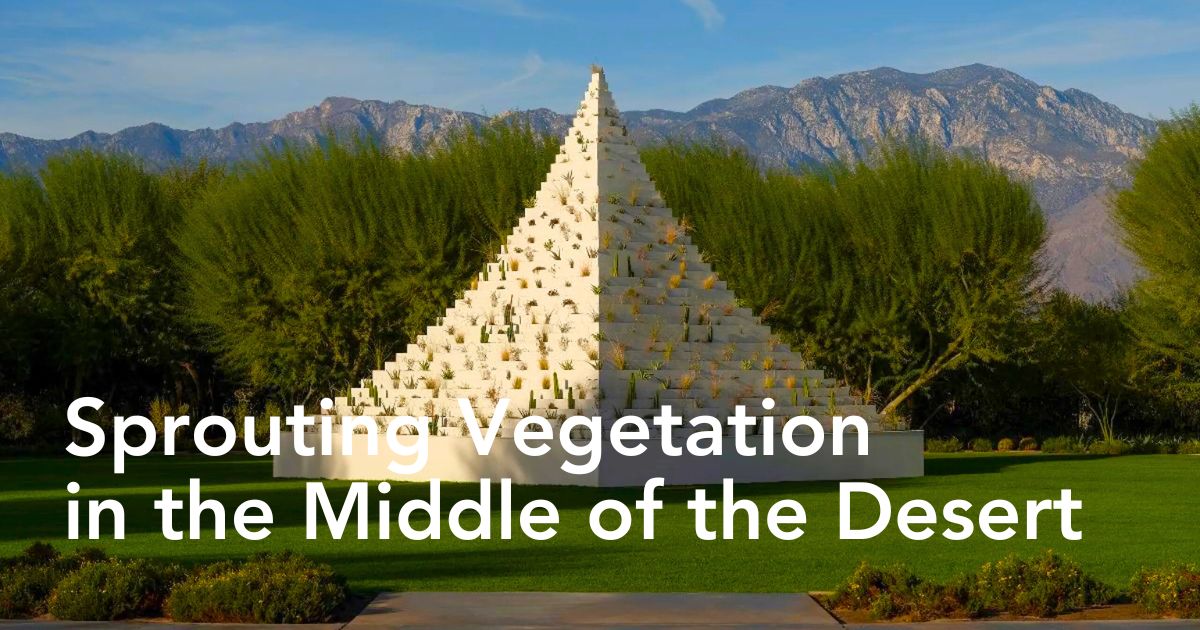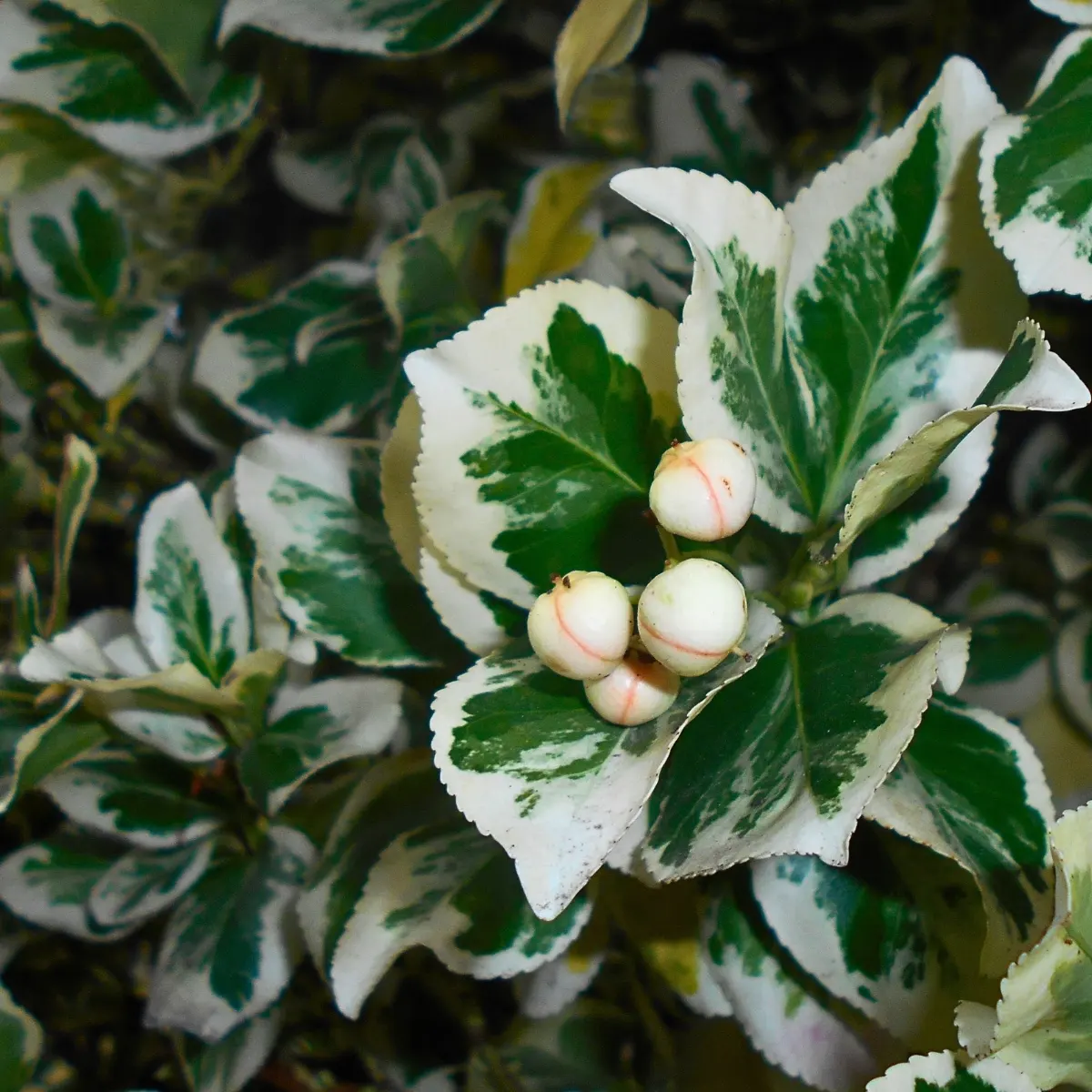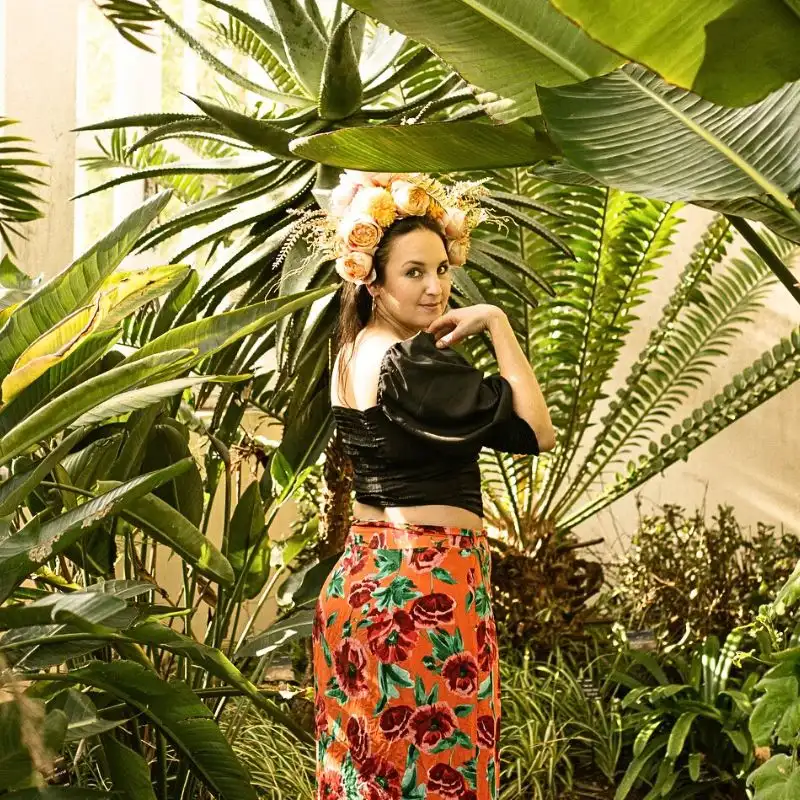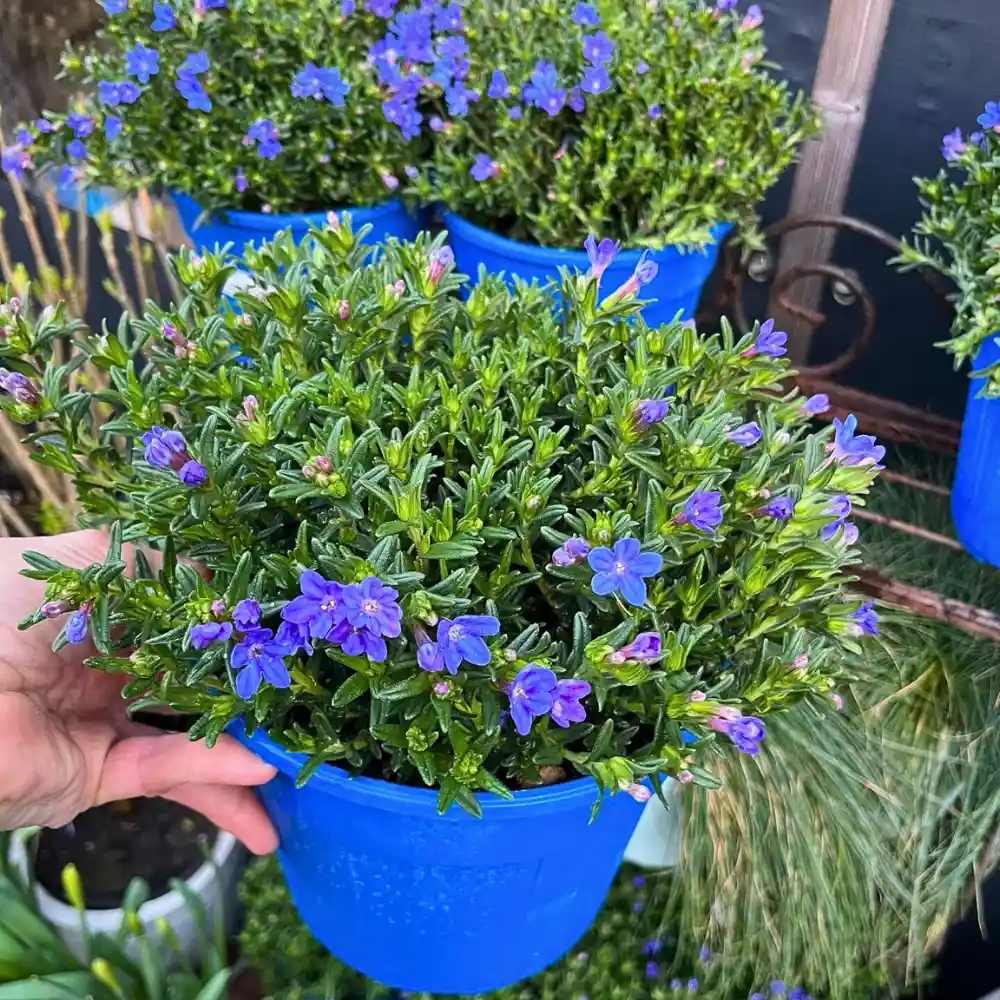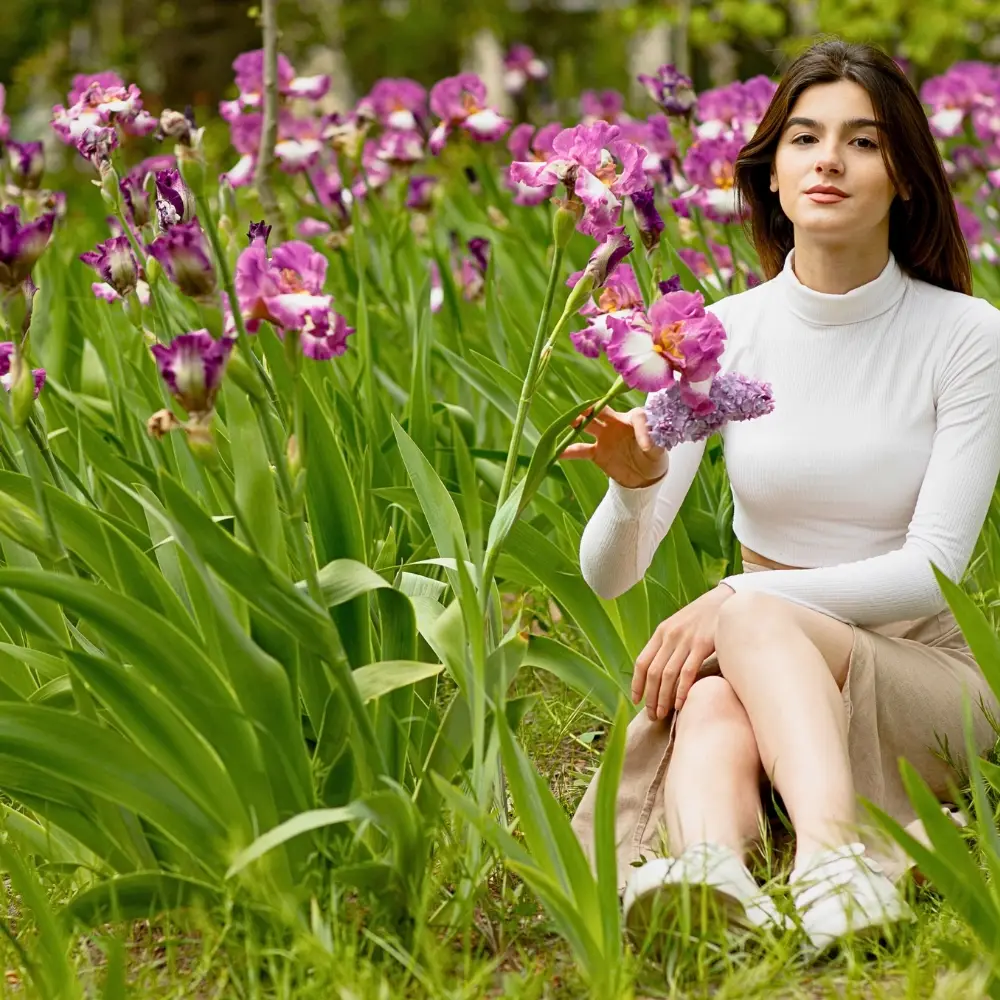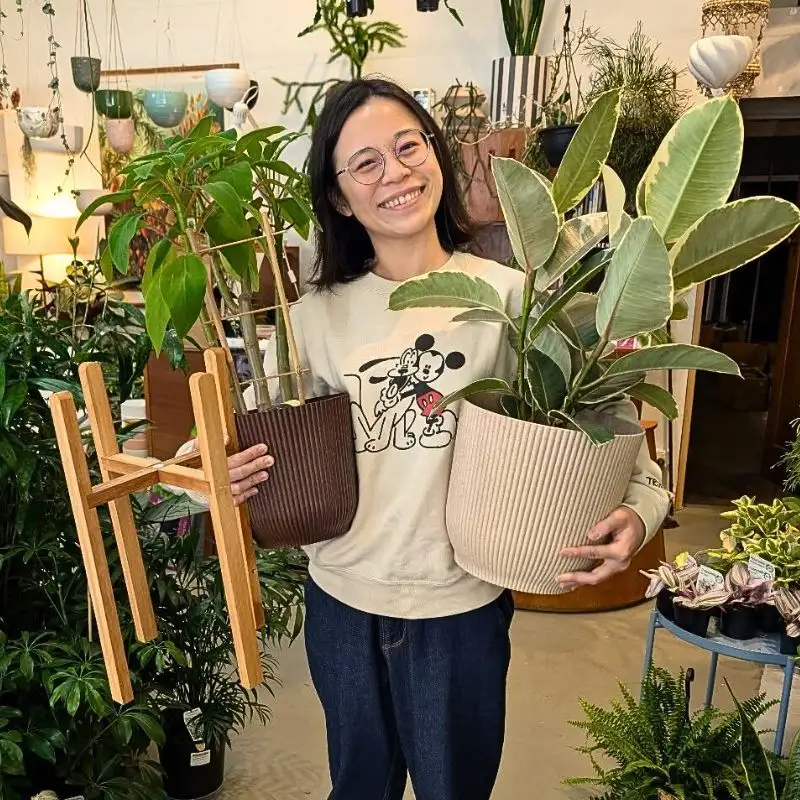The Living Pyramid has been revealed as the first significant commission for Desert X, the site-specific international art exhibition, for 2025. Agnes Denes, a 92-year-old Hungarian-American artist who is recognized as a renowned environmental artist and philosopher, created an enormous piece of art featuring plants on the pyramid.
Pyramid by Agnes Dennes to Bloom Publically in May 2025 in Coachella
This enormous artwork, which is presently on exhibit at Sunnylands Center & Gardens, will be a part of Desert X's fifth edition, which will take place in the Coachella Valley of California from March 8 to May 11, 2025. The public will continue to be able to view the display for free. Agnes's 'Living Pyramid' is a profound and transforming work that represents her passion for studying the relationships between mankind, nature, and knowledge.
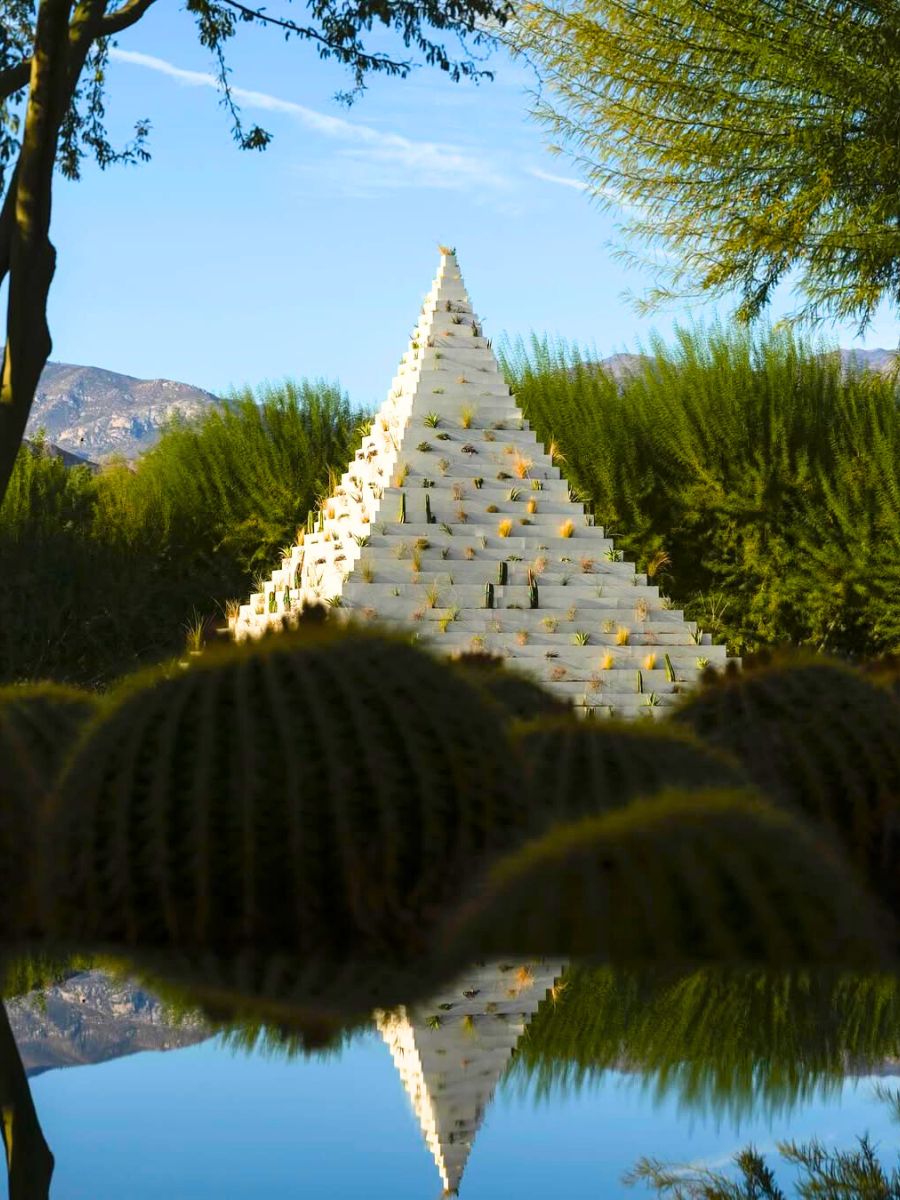
The Interplay Between Nature and Structure
Agnes, born in Budapest in 1931 and has lived in New York since the 1960s, is regarded as a conceptual art pioneer. Her practice combines scientific research, philosophical exploration, and environmental advocacy. According to Denes, her art reflects a dynamic, evolving world where objects are processes, forms are patterns, and reality is continually changing.

This work ethic is reflected in The Living Pyramid, a version of her famous pyramid buildings tailored to Desert X and its surroundings. The work creates a balance between mathematical accuracy and organic growth, offering a transforming remark on the cycles of life and death. While the pyramids are founded on mathematics and achieve a type of perfection, they contain all of the defects they are dealing with or portraying, the creator shared.
The project takes root in the desert environment, planted with native vegetation that evolves over time. Its appearance and structure shift as plants sprout, bloom, and decay, embodying the slow rhythms of the desert ecosystem. The Coachella Valley is far from an empty expanse and is a living archive of deep time and evolving narratives, where ancestral knowledge collides with contemporary vision. The pyramid form, echoing Sunnylands’ history as a space for global dialogue, becomes a living, breathing monument to growth and renewal.
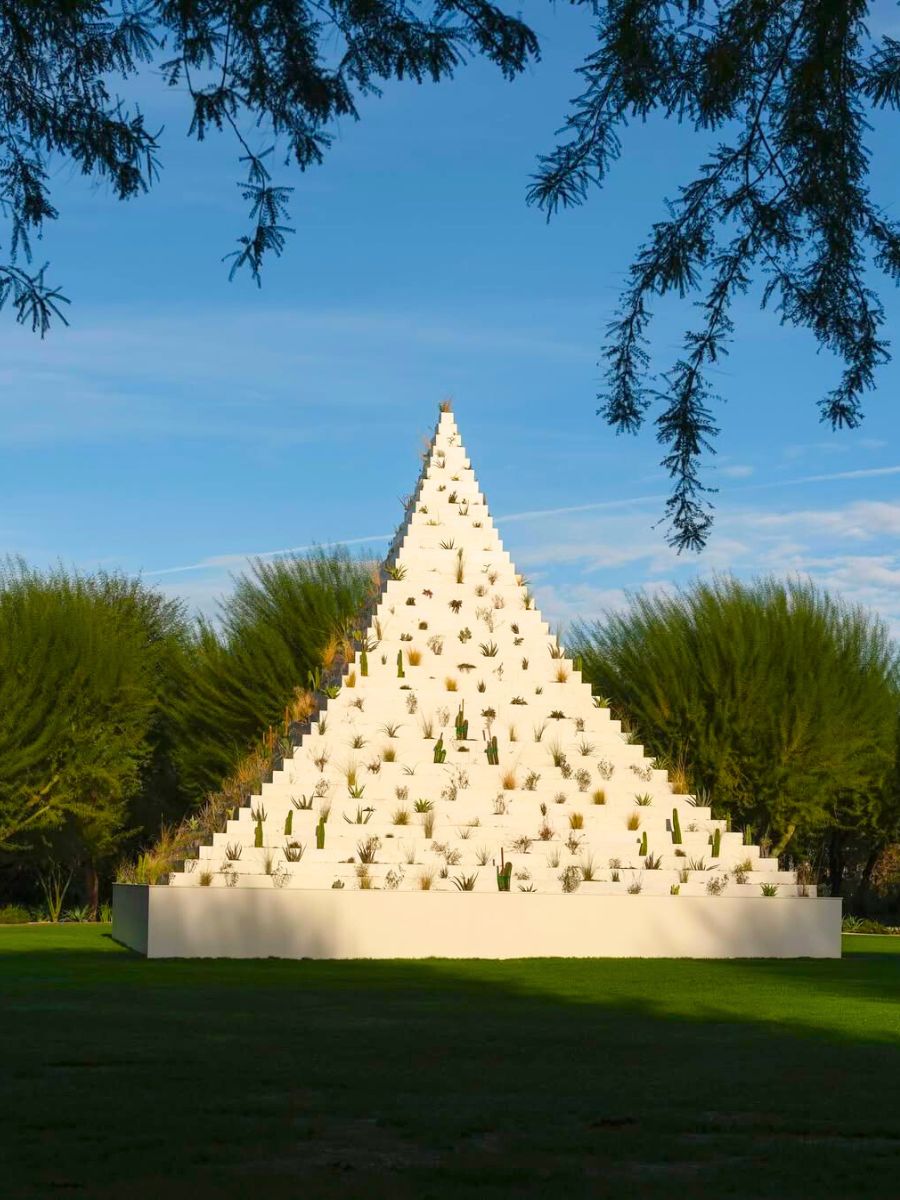
Structures of Thought Linked to Nature
Denes' pyramids go beyond their physical shape to serve as a 'visual philosophy' that addresses environmental and social challenges. Rather than replicating Egypt's original pyramids, the artist claimed that her pyramids "represent structures of mind, humanity, survival, and social conceptions". In this spirit, The Living Pyramid involves its surroundings and caregivers, becoming a micro-society of people accountable for its continuing upkeep. The text emphasizes important topics such as water conservation and encourages philosophical contemplation on biological and geological time.
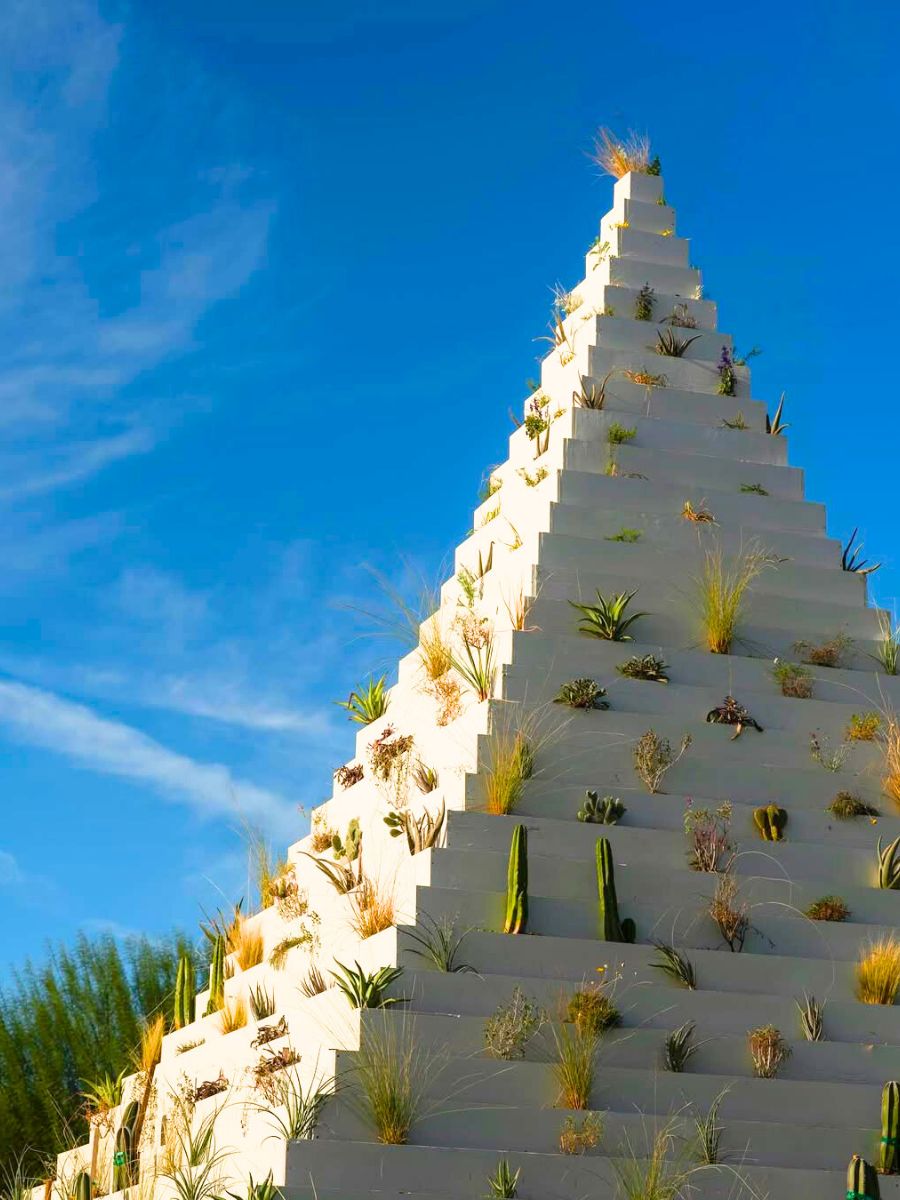
Since its original 2015 commission by Socrates Sculpture Park in New York City, the Pyramid has traveled to documenta 14 in Kassel, Germany, the Sakıp Sabancı Museum in Istanbul, the Hayward Gallery in London, and will appear at MUDAM Luxembourg in 2025. Each iteration incorporates indigenous plants and reflects the local environment, reinforcing a global vision for her work.
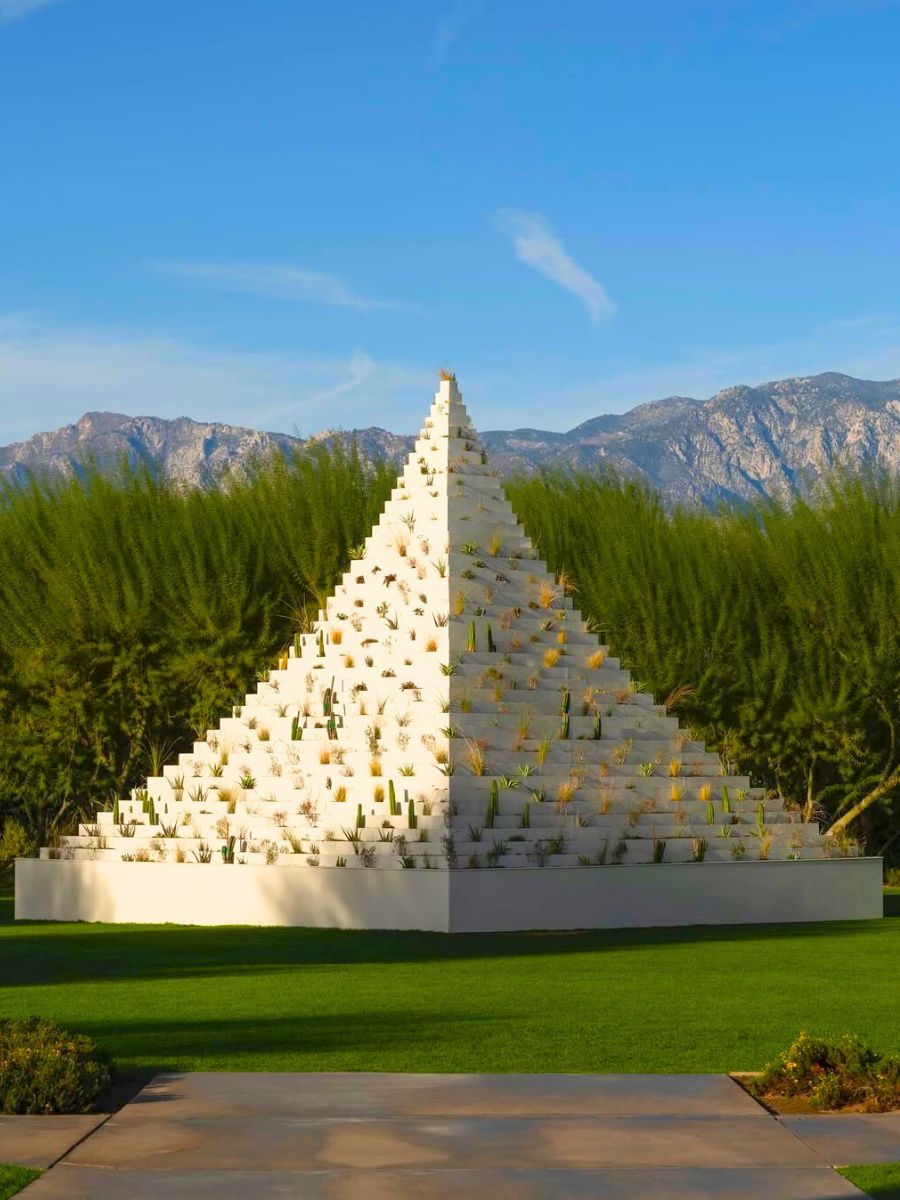
This new iteration is not just about planting vegetation; it’s about planting the paradox — a structured edifice of soil and grain, which speaks both to human ingenuity and the cycles of nature.
Photos by @lance.gerber.

